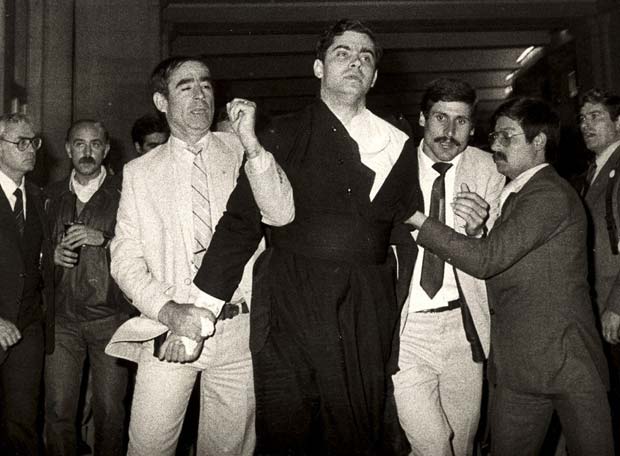1886 Birth of Karl Barth
Karl Barth (1886-1968) was the leading Protestant theologian of the twentieth century, still the subject of intense study and discussion today.
Barth was born to the family of a Swiss Reformed preacher and adhered to the Reformed tradition all his life. He was educated at university by liberal professors such as Rudolf von Harnack and the neo-Kantian Wilhelm Herrmann but turned against such theology. Barth was particularly upset when at the beginning of World War I a number of leading German thinkers, including some of his professors, signed a manifesto supporting the war and the Kaiser. Barth would say of this moment:
An entire world of theological exegesis, ethics, dogmatics, and preaching, which up to that point I had accepted as basically credible, was thereby shaken to the foundations, and with it everything which flowed at that time from the pens of the German theologians.
He would always, henceforth, be alert to any signs of Christianity selling out to contemporary culture, especially nationalism. His Epistle to the Romans, published in 1919 and reworked in 1920, attracted the attention of like-minded intellectuals such as Rudolf Bultmann and Paul Tillich who became proponents of what was known as “dialectical theology”. A website dedicated to his work sums up his views in this way:
Barth believed that Christian theology should derive its entire thinking about God, man, sin, ethics, and society from what can actually be seen in Jesus Christ as witnessed by the Old and New Testaments rather than from sources independent of this revelation.
In his study Karl Barth kept a copy of the crucifixion painting of the Isenheim altar of Matthias Gruenwald with John the Baptist. Barth often used this painting as an example of how a theologian should work: He should look at the finger of John with which he points toward Christ, and he should remain true to the mission of proclaiming Jesus Christ.
Karl Barth was not a fundamentalist who believed that the Bible was the actual word of God and that every word of the Bible was “true.” Instead, he saw the Bible as a human book, written by people with human failings. But he did believe that the Bible was the source of revelation and the place where people may meet God, because God has chosen to meet them there. (Readers interested in learning more about him may visit http://kbarth.org.)
In the 1920s Barth’s career prospered at German universities, first as a Professor of Dogmatics and New Testament Exegesis in Münster, and from 1930-1935 as a Professor of Systematic Theology in Bonn, but the election of Hitler’s National Socialists in 1933 forced him onto a path that would lead to his leaving his adopted country. He was a leader in the group of pastors and theologians who signed the 1934 Barmen Declaration which condemned the racist “German Christian” movement aligned with Nazi religious policies and which became one of the founding documents of the dissident Confessing Church. In 1935 he refused to take an oath of allegiance to Adolf Hitler and was expelled from his university teaching post and from Germany.
Back in Switzerland at the University of Basel, Barth continued his monumental work of systematic theology called Church Dogmatics which would run to 6,000,000 words in thirteen volumes but remain unfinished at his death. His fame as a theologian was enormous but he also encountered controversy when he adopted political positions that seemed at times pacifist and insufficiently anti-Communist.









